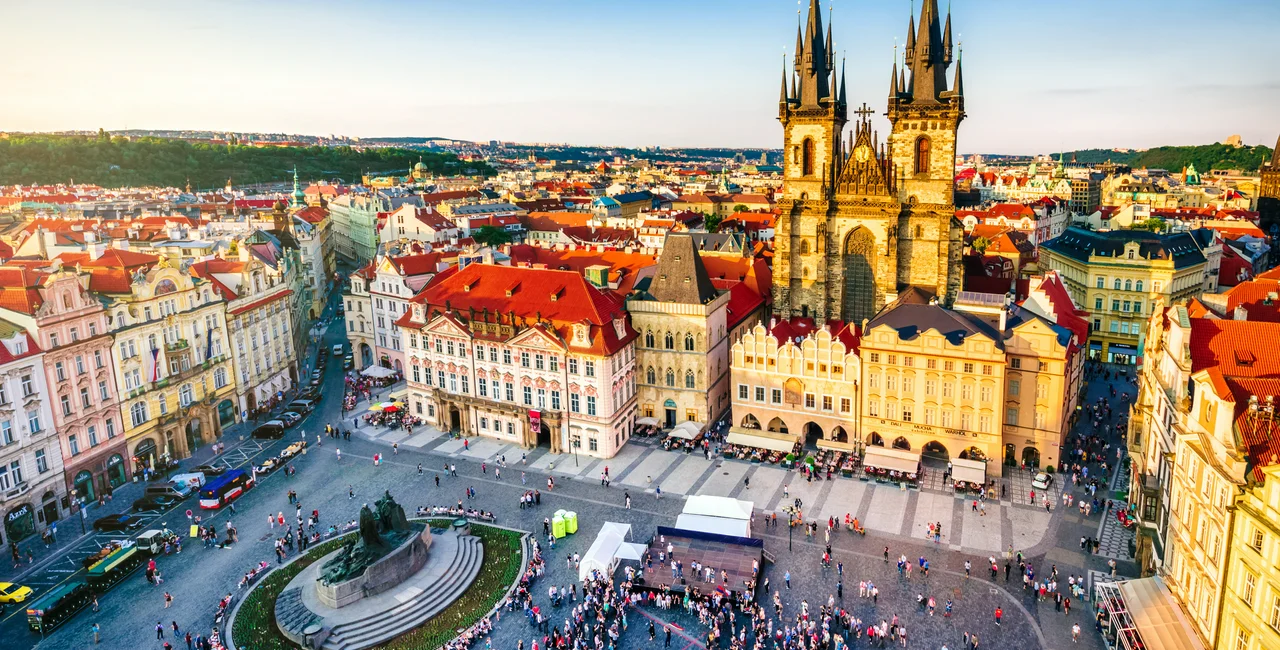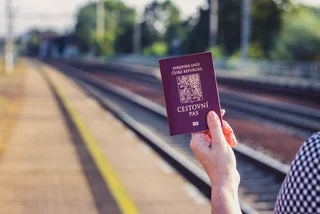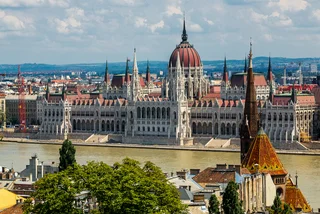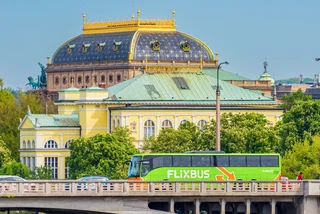Tourist season in the Czech Republic starts June 21, and people from more countries will be able to visit.
In a surprise move, Foreign Minister Jakub Kulhánek announced on Twitter that tourists will be allowed to come from the United States as of June 21. The U.S. will join the list of green countries on the Foreign Ministry’s travel map. People from those countries can visit the Czech Republic for any reason, including tourism.
3/3 Od pondÄ›là se bezmála po roÄnà pauze budou moci do ÄŒR 🇨🇿 opÄ›t podÃvat turisté napÅ™. z USA 🇺🇸, pokud jsou naoÄkovanà nebo s testem (pro vstup do restaurace nebo ubytovanÃ). KoneÄnÄ› se totiž rozÅ¡Ãřà seznam zelených států, ze kterých mohou pÅ™ijÞdÄ›t turisté do ÄŒR 🇨🇿!
— Jakub Kulhanek (@JakubKulhanek) June 17, 2021
Also new to the green list are Albania, Hong Kong, Lebanon, North Macedonia, and Taiwan. They join Australia, Iceland, Israel, Japan, Malta, Monaco, New Zealand, Poland, South Korea, Singapore, Romania, San Marino, Thailand, and the Vatican.
EU members agreed earlier this week to drop its ban on tourists from the U.S., and a formal announcement is expected soon. The whitelist of countries whose citizens can make nonessential trips such as tourism will be expanded to include Albania, North Macedonia, Serbia, Lebanon, the United States, Taiwan, Macau, and Hong Kong. These will be added to Australia, Israel, Japan, New Zealand, Rwanda, Singapore, South Korea, and Thailand, which were already whitelisted.
The U.S. though remains closed to tourists from the EU, and no date has been set for a restart.
Health Minister Adam Vojtěch previously announced that people from all of the EU and Serbia will be able to travel to the Czech Republic without limits as of June 21 if they meet the rules of Covid vaccination or testing, or have recovered from the infection in the past 180 days. Citizens of Slovakia, Poland, Germany, Austria, Hungary, Slovenia, and Croatia can travel to the Czech Republic freely if at least 22 days have passed since their first dose of a Covid vaccine.
Britain is no longer in the EU, and no information on when British tourists will be allowed back has been announced. Britain is currently listed as a very high-risk country, and only essential or business travel is allowed.

Americans in 2019, the last full year of tourism before the pandemic, were in fifth place for overnight stays at hotels or other accommodations. Of the overall 27.2 million overnight stays, Americans accounted for 1.4 million. The largest number of tourists came from Germany, followed by Russia, Britain, and Slovakia.
Tourists – as well as people who live in the Czech Republic – will still need a recent negative Covid-19 test certificate or a vaccination certificate to use restaurants, services, and hotels or other accommodation facilities.

Details on what vaccination certificates will be accepted from American tourists have not been clarified, but the U.S. uses the same vaccines that have been approved for use in the EU. A new smartphone app has been launched by the Czech National Agency for Communication and Information Technologies (NAKIT) so hoteliers, restaurateurs, and others can scan QR codes on Czech vaccination, testing, or recovery certificates. It will soon read EU certificates as well. An app that will hold people’s certificate QR codes will also soon be launched.
Before the pandemic, tourism generated 3 percent of Czech GDP.
“In 2019, tourism generated CZK 355 billion and provided jobs to almost a quarter of a million people in the Czech Republic,” Jan Herget, director of the state agency CzechTourism, said in early May when a new tourism strategy was announced.
The goal of the new strategy isn’t just to reopen the country to inbound visitors, but also to attract people who are more interested in culture than in cheap alcohol and to encourage them to look beyond Prague’s city center. Tourism should be sustainable and positively contribute to Prague and other Czech regions without negatively impacting on everyday life in heavily visited places.
Account Manager

DATA ANALYST


Tourists who visit Prague, will be seeing a somewhat different city than before the pandemic. New rules regarding alcohol sales and noise, for example, have already taken effect on both banks of Prague’s waterfront, called Náplavka. Many museums that catered to tourists such as ghost museums, a sex museum, and a torture museum have closed. Some scooter rentals and other services used primarily by tourists are also gone, though scooters and bikes that can be rented via apps can still be found on many streets. Many of closed tourist attractions will not reopen once foreign tourists return, daily Mladá fronta Dnes reported.
There are also changes for Czech tourists going abroad. People will be able to return to the Czech Republic from the dark-red highest risk countries on the government travel map without the self-quarantine obligation if they had their Covid vaccination, with a vaccine approved by the European Medicines Agency (EMA), completed 14 days ago at least.
Those facing a PCR test on return to the Czech Republic will be able to have themselves tested immediately on arrival, while up to now they have had to undergo a test between the fifth and the 14th day following their arrival.
The Foreign Ministry also launched the new website dovolena2021.cz with conditions to enter 14 selected holiday destinations and to return from them to the Czech Republic. The information is primarily geared to people with Czech or EU passports. The website presents information on Bulgaria, Egypt, Croatia, Italy, Germany, Poland, Portugal, Austria, Greece, Slovakia, Slovenia, Spain, Tunisia, and Turkey.
In Croatia, the travel conditions for the inoculated differ according to the vaccine they received, for example. "When traveling to Croatia, both adults and children must have an identity card or the passport without any exception," Foreign Minister Jakub Kulhánek said.
By contrast, when traveling to Bulgaria, there are no limitations since Wednesday, but when returning to the Czech Republic, people must show a test, the vaccination or certificate of the past disease.

Greece can be entered by the inoculated 14 days after the end of vaccination or those with the PCR test not older than 72 hours as well as those with a certificate on having undergone the disease, valid for two to nine months after the data in it.
The webpage also provides information on the conditions and lockdown measures in the tourist destinations, the steps against Covid and useful contacts.
Kulhánek called on Czech citizens to be registered within the system DROZD, used by Czech diplomatic offices to inform Czech tourists about emergency situations such as elemental disasters or terrorist attacks. In popular tourist destinations, there will be again joint police patrols. Along with Croatia and Bulgaria, they will be newly also in Albania. The patrols help in emergency situations during holidays abroad, such as in traffic accidents or criminal acts.












 Reading time: 5 minutes
Reading time: 5 minutes 



 Russian
Russian
 Ukrainian
Ukrainian
 Norwegian
Norwegian
 Spanish
Spanish
 Greek
Greek




























